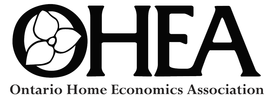|
Updated in July 2015 by the Manitoba Association of Home Economists
Power outages can occur at any time during the year, so it is important to know what to do in terms of food safety when the power goes out. What is the proper temperature at which foods must be held to remain safe to eat? How long will frozen foods stay frozen? How do you make sure that foods are cooked properly and to the right temperature when using alternate cooking methods? These are all things to consider. It is recommended that refrigerators and freezers be kept closed at all times during a power outage. If they do need to be opened, this should be kept to a minimum. Food in a freezer that is full should be safe for 2 days, 1 day if it is half full. Food in refrigerators will be kept cold for a short period of time. There should be a thermometer in the fridge and freezer at all times to monitor the temperature. Refrigerator temperature should be 4°C (40°F) or less and freezer temperature should be -18°C (0°F) or less. Thawed foods that still contain ice crystals can be refrozen. However, do not refreeze frozen dinners, ice cream, fish and shellfish. Because there is an increased risk of food becoming contaminated or spoiled, one must take extra care in food preparation. Choose foods that can be prepared quickly and require less heat. For example, slice meat thinly so it will cook more quickly and completely. Stir frequently to distribute the heat evenly. Raw chicken should be cooked to 80°C (180°F), beef and pork to 70°C (160°F) and eggs should be cooked until yolk and white are firm. Canned foods are a good option, as they do not require heating. Alternative cooking methods include the fireplace, candle warmers, and fondue pots. Fuel-burning camp stoves, gas or coal barbecues or charcoal burners can also be used, but should never be used in the house. Fumes from these stoves can be deadly. Discard any perishable food if kept over two hours at above 4°C (40°F). This would include the following:
WRITTEN BY THE PUBLIC HEALTH NUTRITIONISTS OF SASKATCHEWAN Originator: Cathy Knox References: The Sanitation Code for Canada’s Foodservice Industry by Canadian Restaurant and Food Services Association. “Food Safety During a Power Failure,” Journal unknown, Volume 1, Issue 5. Reviewed by the Public Health Inspectors, Swift Current Health District.
0 Comments
Your comment will be posted after it is approved.
Leave a Reply. |
The Ontario Home Economics Association, a self-regulating body of professional Home Economists, promotes high professional standards among its members so that they may assist families and individuals to achieve and maintain a desirable quality of life. Categories
All
Archives
April 2024
|
|
Subscribe to our mailing list
|
|
Unsubscribe from our mailing list
|
Copyright © 2023 Ontario Home Economics Association (OHEA). All Rights Reserved.


 RSS Feed
RSS Feed